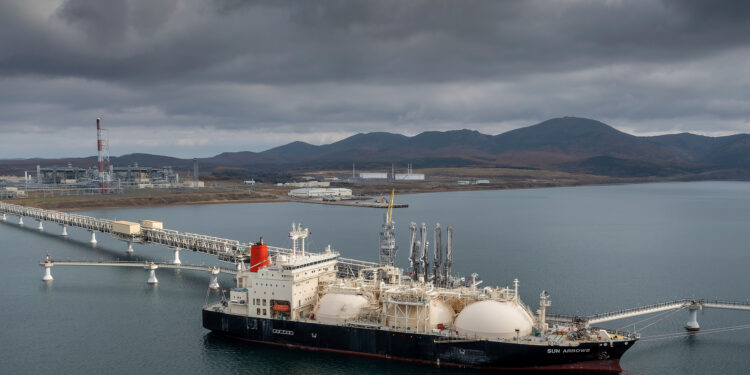Kirill Logvinov, Acting Permanent Representative of Russia to the European Union, announced in a recent interview with the Russian news agency RIA Novosti that the European Union has lost its importance as an important trading partner for Russia. Logvinov attributed this decline to the European Union’s adoption of an “economic war” stance, which was characterized by the continued imposition of sanctions on Russia and interference in Moscow’s economic relations with third countries.
Logvinov noted that according to Eurostat data, the trade volume between the EU and Russia continued to decline in 2023, with Russia falling from fifth to tenth place in the list of the EU’s main trading partners.
Logvinov provided specific numbers to clarify the extent of the decline, saying: “Over the 11 months of 2023, the volume of Russian trade with the European Union decreased by 66.1 percent compared to the same period in 2022.”
The figures reveal a significant decline from 243.5 billion euros (about 262.8 billion US dollars) to 82.5 billion euros (about 89 billion dollars).
At the same time, statistics indicate a significant decline in European Union imports of Russian products, which witnessed a significant decline of 75.6 percent, reaching 46.9 billion euros (about 50.6 billion dollars). While exports of goods from the European Union to Russia witnessed a noticeable decline of 30.3 percent, reaching 35.6 billion euros (about 38.4 billion dollars).
The Russian “Interfax” agency, citing the Russian Customs Authority, reported that exports to Asia, which replaced Europe as the most important market for Russian energy, rose by 5.6 percent to $306.6 billion.
Moscow stopped publishing a wide range of economic statistics, including trade data with individual countries.
Separate Chinese customs data showed that bilateral trade between the two countries reached a record high of $240 billion last year, in light of the growing economic, commercial and political relations between Beijing and Moscow.
The Russian Central Bank reported last week that Chinese yuan balances in Russia’s bank accounts exceeded those in US dollars for the first time ever, with the Russian financial system adopting the Chinese currency in the face of sanctions linked to its access to the dollar, according to Interfax.
The agency stated that the total Russian trade surplus amounted to $140 billion in 2023, a decrease of 58.5 percent in 2022, and led to Moscow achieving large energy revenues, as its attack on Ukraine led to a rise in oil and gas prices, while Europe continued to buy Russian energy for most of the year.
Earlier, Forbes magazine said that there was a significant decline in bilateral trade between Russia and the United States, as it reached its lowest levels since the fall of the Soviet Union. According to the latest data issued by the US Census Bureau, US exports to Russia decreased by 91%, while imports decreased by 85% in the first 11 months of 2023 compared to the same period in 2021.
Overall trade fell by 86%, bringing its total since the beginning of 2023 to $4.81 billion as of November.
The financial ramifications of this deteriorating trade relationship underscore the broader consequences of geopolitical tensions between Russia and the European Union.



